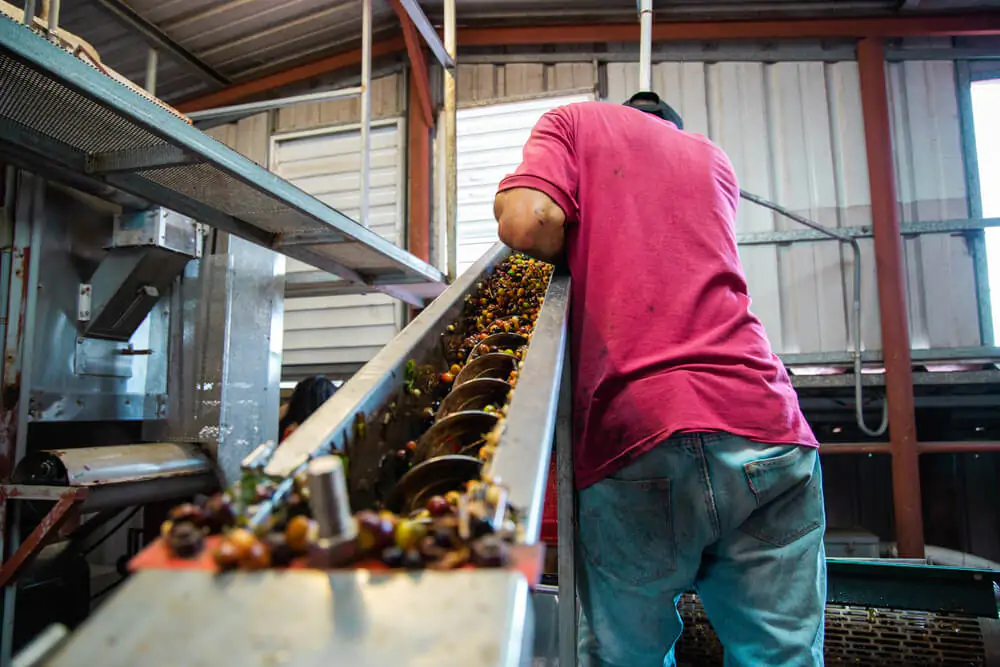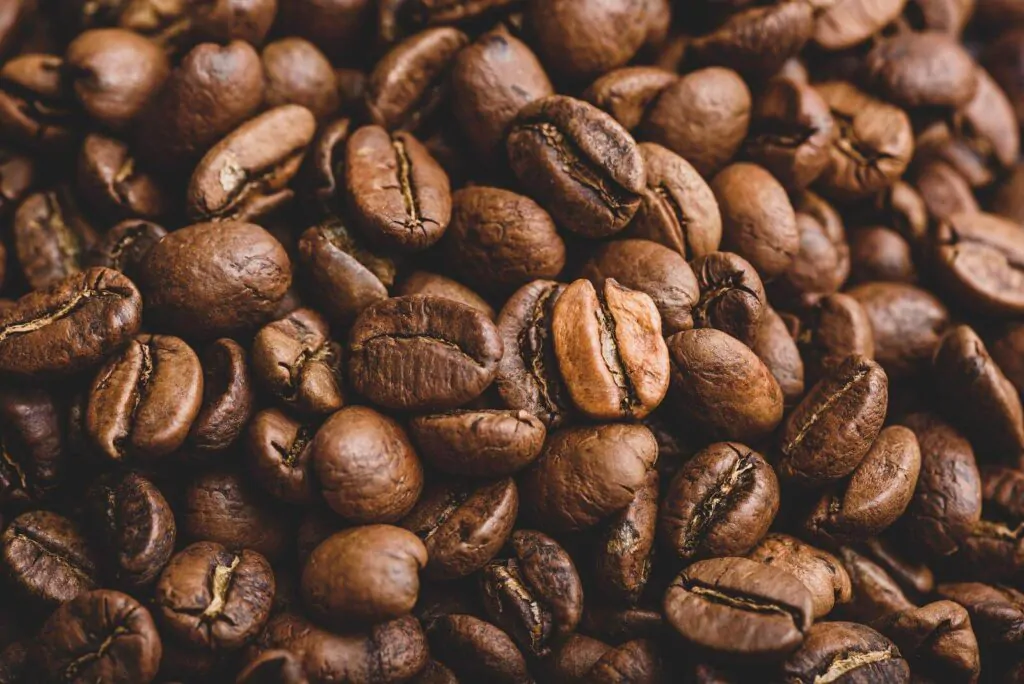Decaf coffee is enjoyed by many as an alternative to its caffeinated counterpart. It doesn’t give you that morning “jolt” of energy, so exactly what is in decaf coffee?

Coffee beans naturally have caffeine. Knowing the process manufacturers use to make decaf coffee can help you decide if it’s the right choice for your morning beverage.
So what is in decaf coffee that makes it not have caffeine?
There are several ways to remove caffeine, but surprisingly, there will still be trace amounts in your decaffeinated cup of joe and possible additives you may not know about. Let’s take a closer look at some of those processes, and what to expect from a decaf cup of coffee.
The Decaffeinated vs Caffeinated Formula
Decaf coffee is regular coffee that does not contain the caffeine you would find in a standard cup. Coffee producers have perfected different ways to remove caffeine from coffee beans. Each method has its advantages, but the resulting product will still contain trace amounts of caffeine.
Most standard decaffeination methods will remove approximately 97% or more caffeine from the beans. Therefore, on average, a cup of decaf coffee will contain only 2 mg of caffeine, while the same sized cup of traditional coffee will contain 95 mg of caffeine.
While this minuscule amount may not seem like much to worry about, you may have to consider other elements residing in your cup from the decaffeination process.
You might also be interested in our Ganoderma coffee guide.
What Else Is In Decaf Coffee?
Because decaffeinated coffee beans are not growing naturally, manufacturers need to remove the caffeine somehow.

There are four different ways to remove caffeine from beans, including
- Swiss Water Method
- Supercritical Carbon Dioxide Method
- Indirect Solvent Processing
- Direct Solvent Processing
Consequently, the solvent processing methods that include chemicals are controversial on the health front because of what becomes added to decaf coffee products after processing.
Processing Chemicals
Solvent processing methods will use chemicals like ethyl acetate or methylene chloride in combination with water to soak the beans and draw out the caffeine.
According to the Food and Drug Administration (FDA), these chemicals are not harmful in small amounts. If you are a heavy decaf drinker, continuous exposure could affect your health over time. However, not all decaf coffee beans contains chemicals as it depends on the process used on the beans.
Higher Cholesterol
The beans chosen for decaffeination include a higher fat content than regular coffee beans. Therefore, you could unknowingly increase your cholesterol levels by consuming decaf coffee.
It’s easy to assume decaf coffee is better for your health since you are limiting your caffeine intake, but it’s important to consider other possible consequences.
How To Choose the Best Decaf Coffee
There are many benefits to consuming decaffeinated coffee rather than the alternative. Reducing your caffeine intake can minimize existing conditions such as
- Digestive disruption
- Sleeping problems and insomnia
- Enhanced anxiety
- High blood pressure
While switching to decaf may not eliminate these issues entirely, you may find a noticeable change for the better when you do not consume high amounts of caffeine.
If you still want to enjoy a nice cup of decaf, there are ways to ensure you do not ingest any chemicals or increase your cholesterol too much.

The Swiss Water method and the supercritical carbon dioxide processing methods are the best ways to remove caffeine naturally from coffee beans without soaking them or exposing them to chemical solvents.
Do your research and ensure that the brand you choose lists the decaffeination method on their packaging so you know exactly what you are putting into your cup.
What Is In Decaf Coffee FAQs
Let’s cover a couple of common questions that still may be lingering.
Is Decaf Coffee Healthier For Me Than Regular Coffee?
If you are sensitive to caffeine or have existing health conditions that caffeine can negatively impact, it could be a healthier option. However, regular coffee does have its own benefits, including providing essential antioxidants while lowering the risks of diabetes and some cancers.
How Much Decaf Coffee Is Too Much?
Although decaffeinated alternatives may seem better for you health-wise, you should limit your daily consumption. Enjoy a maximum of two or three cups per day and other drinks throughout your activities.
If you liked this article check out Can You Get Addicted To Decaf Coffee?
